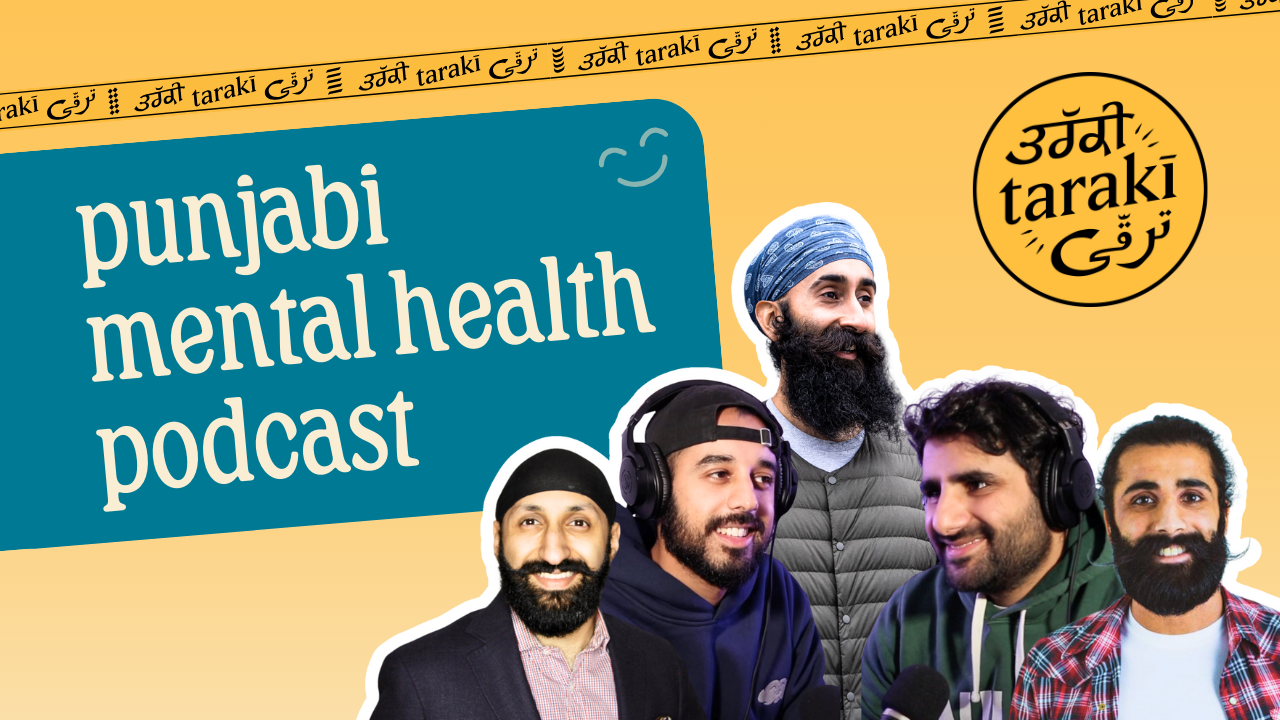In March 2024, Taraki’s Punjabi Women’s Forum came together to discuss Fertility Journeys. You can read a summary of the discussion here.
In March 2024, the Taraki women’s forum met virtually to discuss fertility journeys and baby loss. In the realm of fertility struggles, miscarriages, and the challenging path of adoption a smaller, more intimate group came together this month where we welcomed new forum members who kindly shared their own struggles. Sarina Kaur Dosanjh, one half of the Himmat Collective (co-ran with her husband Vik) presented at the session.
Created in March 2022, Himmat Collective emerged from a Taraki Women's Forum, officially launching in June 2022. Also featured in the BBC documentary "Love, Faith & Me - Married, Sikh & Wanting a Baby," the collective aims to break societal expectations, challenge internalised shame, and provide a safe space for individuals facing fertility struggles, this time collaborating with Taraki. In the documentary, the couple share their deeply personal story through a video documenting their loss. Their experience aims to bring attention to the emotional turmoil of a fertility journey, where the world seems to crumble with each miscarriage. Sarina's vulnerability touched the hearts of many as she spoke of her experiences.
After icebreakers, Sarina opened the forum by sharing her and Vik’s story. Their Trying To Conceive (hereafter “TTC”) journey spans four years, marked by a miscarriage and the emotional challenges of medical management. Feeling like a number during doctor visits, they faced a second miscarriage, undergoing a MVA (Manual Vacuum Aspiration) procedure. Sarina also highlighted that the second miscarriage became a turning point in their relationship. Grieving differently during the height of the COVID-19 pandemic, it brought the couple closer, emphasising the importance of unity in facing adversity. The couple embraced the IVF journey for the hope of conceiving and creating their family; the IVF journey introduced new hurdles, with testing revealing low ovarian reserve and a low sperm count. Changing clinics, they encountered a 10% chance of success with ICSI (Intracytoplasmic Sperm Injection) but, ultimately, on this occasion, an unsuccessful treatment.
The couple then looked at building a family beyond “biology”. Undeterred by challenges, Sarina and Vik delved into the adoption process. In contemplating adoption, the couple faced societal judgments and misconceptions; some of the initial responses they encountered were of scepticism – 'they're not yours.' Yet, Sarina and Vik recognized the profound impact they could have on a child's life by offering them a home and opportunities they might not have otherwise ever had. Sarina informed the group of what the process entails, shedding light to how lengthy and administrative the process can be. Researching agencies, undergoing initial checks, registering, and completing training workbooks are vital steps. The stages of assessment, matching, linking, and introductions paved the way for a new chapter in their lives, and in return their focus was on ensuring stability for any child who came into their lives, and most importantly, providing a loving home.
Little did they know, a twist of fate awaited them, as Sarina found herself naturally pregnant during the adoption process, currently awaiting the arrival of her miracle baby.
Despite this, it is important to raise awareness that navigating the emotional landscape of pregnancy is extremely difficult after experiencing pregnancy after loss. At 31 weeks pregnant following loss, their pregnancy journey remains a rollercoaster of emotions. Anxiety, fear, worry, and joy coexist alongside pregnancy excitement, forever altered by past experiences. The sentiment resonated with attendees who shared their own similar stories.Coping strategies, such as mindfulness, yoga, avoiding google and social media rabbit holes have played a crucial role in navigating some of those mental challenges.
As the forum opened up to participants, prominent themes were explored: internalised expectations being one of them. As an example, society has traditionally made women feel responsible when fertility issues arise. In the Punjabi community, women can often be blamed after a loss, perpetuating a stigma of shame. Members came forward to remind each other that men can have fertility issues too. It was also mentioned in the forum that in the Punjabi community, men are seldom asked about their feelings after a loss or while facing fertility struggles. It's also time to get men talking and support them too.
As Himmat recounts their TTC and baby loss journey, the societal stigma and taboo surrounding fertility struggles, miscarriages, and adoption needs to be dismantled. By sharing their experiences openly, Sarina and Vik's journey is not just personal; it is a call to action to change perceptions across generations. By openly discussing their struggles and triumphs, the couple aim to break the generational cycle of shame associated with fertility issues and there was a consensus amongst the women’s group that women should no longer feel solely responsible.
Through the Himmat Collective, Sarina found solace in sharing her journey and connecting with others who understood the pain and loneliness associated with TTC struggles. The women’s forum agreed that resilience, challenging societal norms, and opening up about such difficulties whether that be within the Taraki community or Himmat Collective stands as a testament to the strength found in shared experiences.
The forum ended on an uplifting note, paying respects and remembrance towards the children who were miscarried or lost. No matter the route to parenthood, you are and can be a parent. The women reminded each other that despite the challenges, they would make it through and that difficult journeys often lead to beautiful destinations
You can find out more about the Punjabi Women’s Forum by visiting our Events page here.


